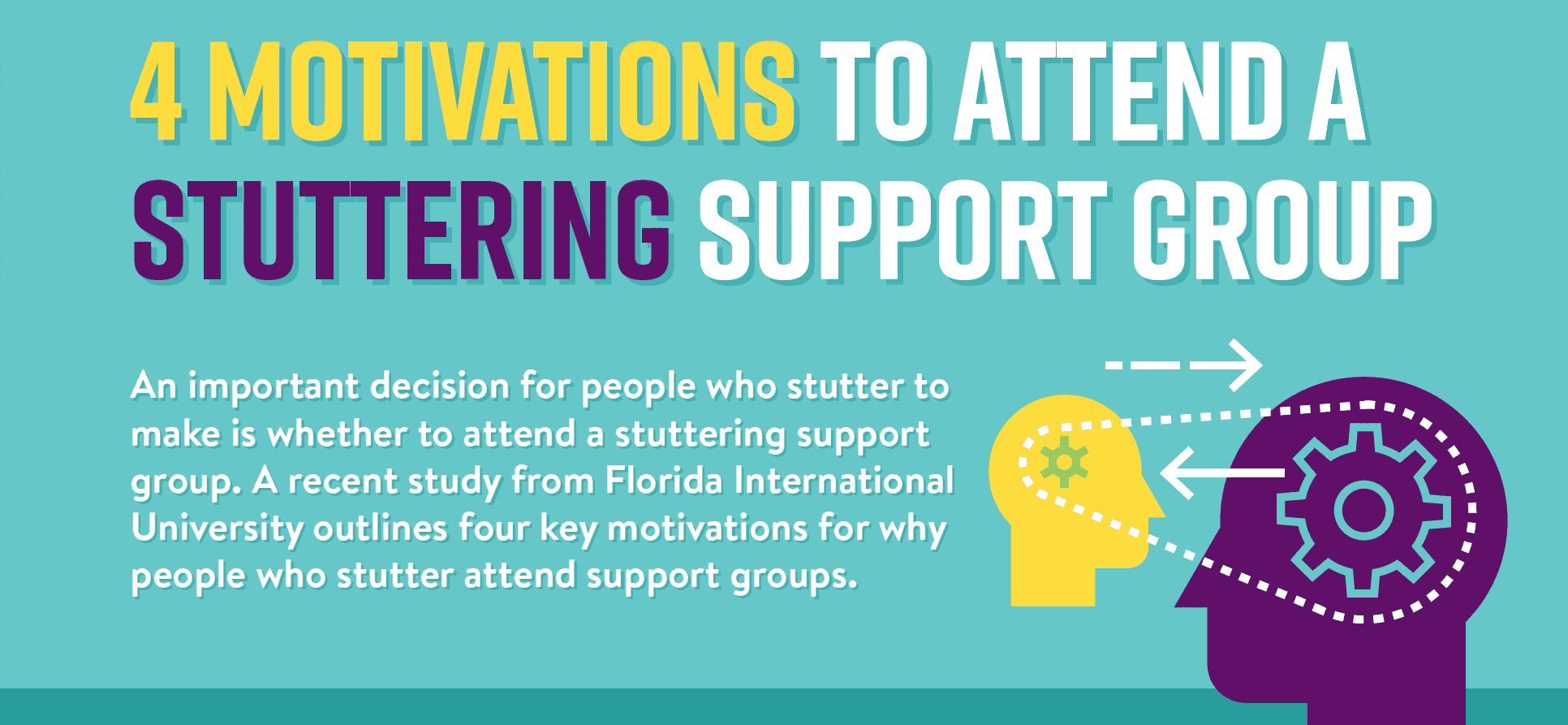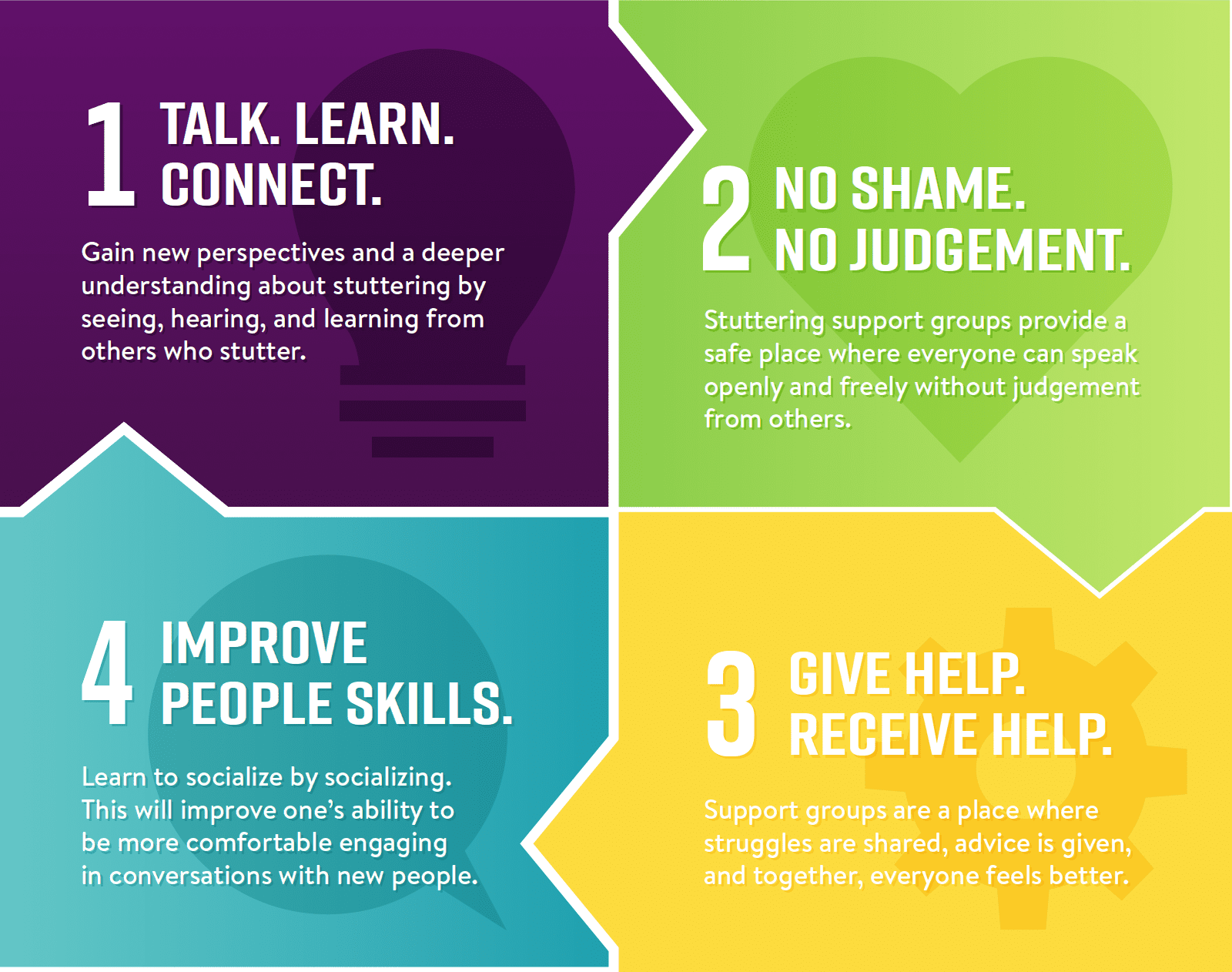Each month, kids, teens, and adults who stutter participate in their local Adult and Family Chapters of the National Stuttering Association (NSA). At these self-help support groups, the conversation flows freely without fear or embarrassment, and no one feels alone.

Angela Medina, Ph.D., CCC-SLP, has led the Miami NSA adult chapter since 2015. When Angela first started leading the monthly meetings, she often sat alone wondering why the guy who emailed her multiple times didn’t show. And, why the young woman who called her the day before excited about the next night’s meeting didn’t attend.
Eventually, Angela’s Miami chapter started to thrive, hosting many regular attendees and welcoming a steady flow of newcomers. But in talking with other Chapter Leaders, Angela learned that some chapters thrived naturally, while others struggled to cultivate a core group of regular attendees.
As an assistant professor teaching classes in fluency disorders at Florida International University, Angela decided to embark on a research project to learn the factors that motivate people who stutter to attend support group meetings. The study’s findings were published earlier this year and the infographic below summarizes the key takeaways. We were fortunate to be able to talk more with Angela, as she shared insights from her insightful research.
What surprised you most about the research findings?
Previous research has shown that people who stutter like going to support group meetings because it gives them the opportunity to be social and meet new people. What we found in our study was that participants liked going to meetings because it gave them an opportunity to specifically work on their social skills such as initiating a turn in conversation.
Your research identifies “Positive Change” as a motivating factor for people to attend stuttering support groups. Can you explain what that means?
In our study, the participants reported experiencing positive changes regarding their emotional well-being as well as their social skills. Put simply, being part of the chapter made them feel better not only about themselves but about their ability to socialize in general.
This aspect of positive change has undoubtedly had an impact on my chapter. We have had three members in the past year who have made major career changes from jobs that they thought they “had to do” because they stutter to jobs they thought they couldn’t do but actually wanted to do (and are so happy to be doing now)! The positive vibes are contagious at our meetings. Just 90 minutes a month worth of genuine support from fellow Chapter members has been life-changing for people.
Can you speak a little bit more about the dynamics that happen in a support group meeting, especially in the cases where some people have a mild stutter and others have a more severe stutter?
Having differences in stuttering severity across group members makes for an incredible learning experience for everyone. Regardless of level of severity, everyone has their own personal battles they face related to their stuttering. The way people handle these battles (be it in the short-term, like getting through a block or in the long term, like figuring out if being covert is still desirable) leaves an impression on the group.
In our study, we found that these differences incited a lot of self-reflection among participants. Participants reported that watching others stutter differently and hearing about how they persevere through tough times has made them think about their own stuttering new ways.
Medina, A. M., Almeida, N., Amarante, K., Martinez, N., & Prezzemolo, M. (2020). Adults who stutter and their motivation for attending stuttering support groups: A pilot study. Perspectives of the ASHA Special Interest Groups, 5(1), 142-154.
Thank you, Dr. Medina, for your important contributions to the stuttering community. It’s dedicated individuals such as yourself who make the world better for everyone who stutters!


